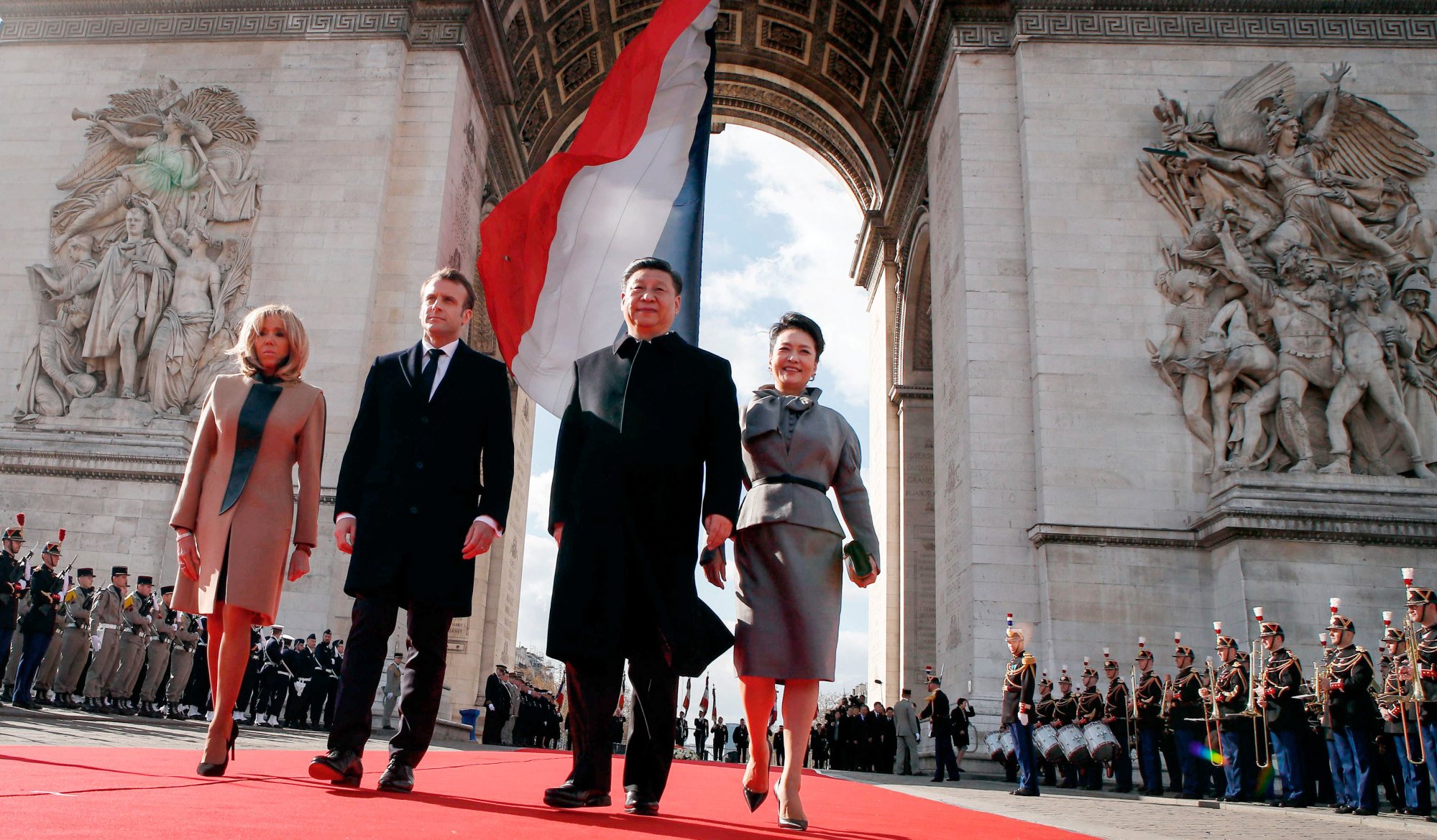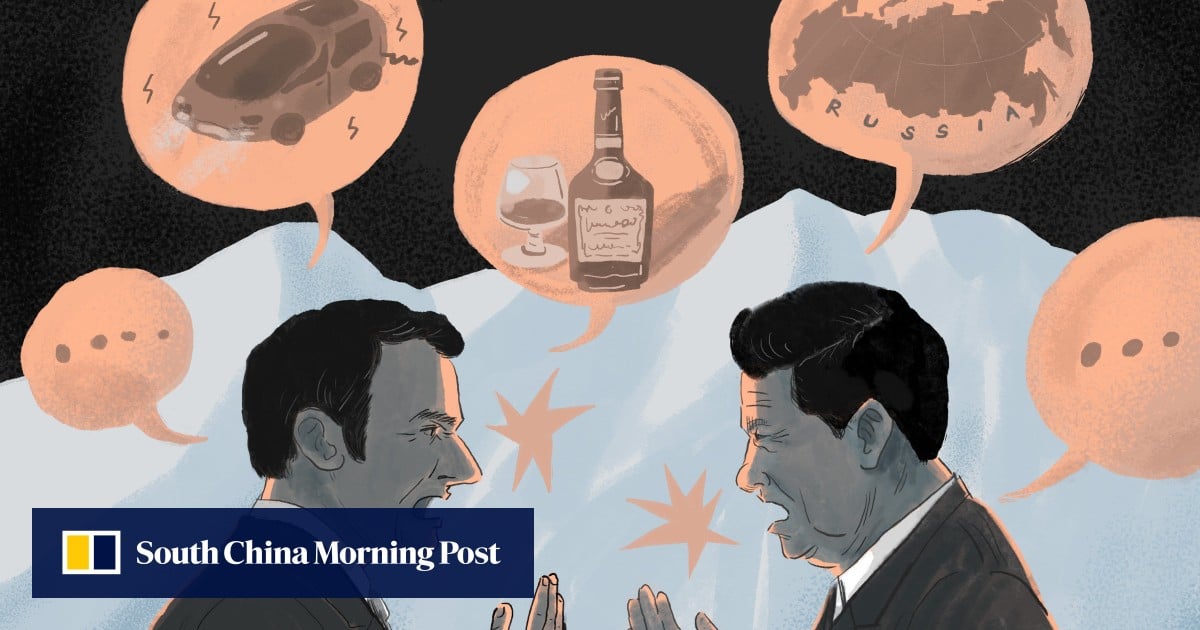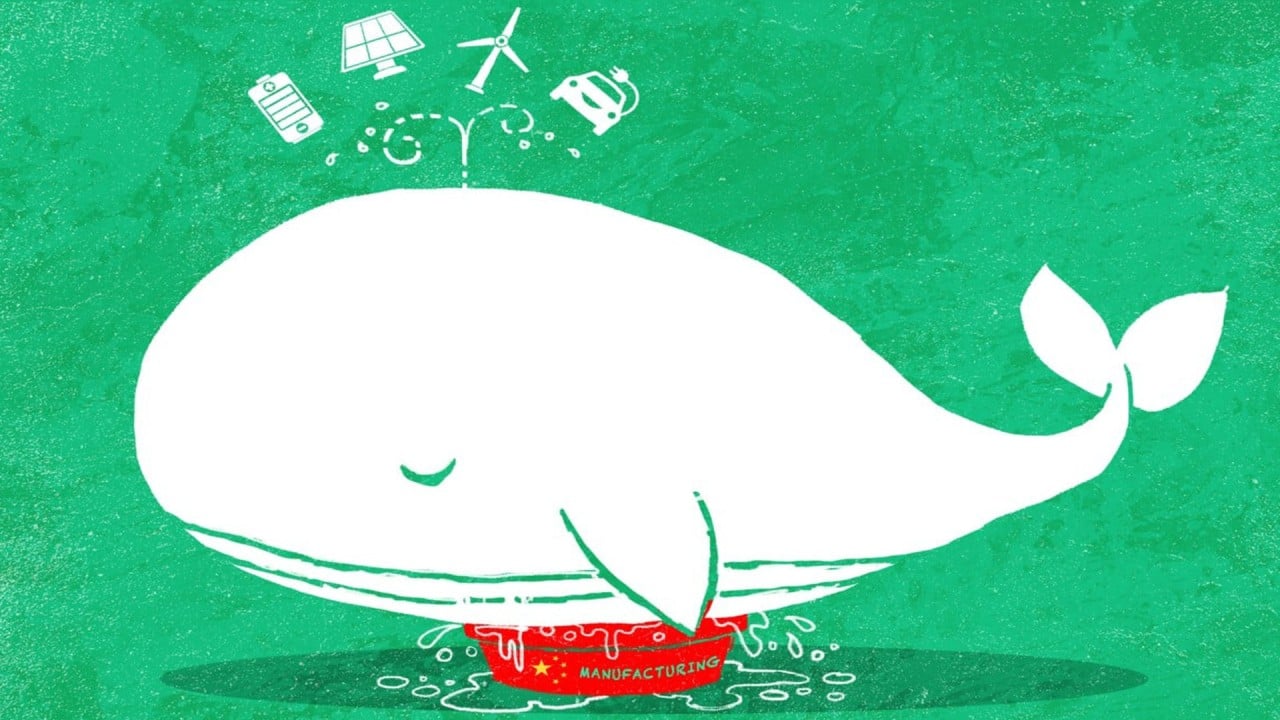“China looks forward to working with France through this visit to … further enhance political mutual trust, solidarity and cooperation, so that we can jointly elevate our comprehensive strategic partnership [and] inject impetus to a sound and stable China-EU relationship,” Chinese foreign ministry spokesman Lin Jian said on Monday.

It remains to be seen whether it will work. Over the last five years, few have embodied that enigmatic triptych of “partner, competitor, rival” more than France and Macron.
“He is neither pro-China nor anti-American. Macron wants to deepen our own interests, he is pro-European,” said Marie-Pierre Vedrenne, a close ally of Macron’s in the European Parliament, where she is a member.
A senior Indian diplomat described Macron, glowingly, as the “ultimate hedger” on China.
“We Indians think we hedge well, but the French are the masters,” the diplomat said, adding that being a counterweight between the US and China was a sensible option for France and Europe.
Macron’s approach to China can often seem inconsistent. Critics pan him for being soft on Beijing, while at the same time Chinese officials rail against EU actions for which he has been a key proponent.
Macron was the main sponsor of a Brussels-launched probe into electric vehicle subsidies in the country last year, but he also desperately wants Chinese companies to build their EV plants in France.
“We would like to see Chinese investment in this field on French soil, so that we can create jobs and, to a certain extent, do what French companies themselves are doing in China. It’s a request we’re making,” said a senior French official involved in the planning for Xi’s trip.
Last week while he was preparing to roll out the carpet for Xi’s visit, Macron met Sikyong Penpa Tsering, the leader of the Tibetan government-in-exile, in Paris.
‘Disaster, regrettable’: why some are criticising German leader’s China trip
‘Disaster, regrettable’: why some are criticising German leader’s China trip
Macron has also pushed back against mimicking US policy on China.
He is the main sponsor of the concept of European strategic autonomy and the chief cheerleader for the EU as a third pole in a multipolar world along with the United States and China.
During a widely watched speech at Sorbonne University last week, he doubled down on his vision of a strong Europe, both economically and on defence, and urged the continent not to be a strategic “vassal” to the United States.
On his trip to Beijing last year, meanwhile, Macron caused a stir by saying Europe should not follow Washington “blindly” on Taiwan.
Insiders say Macron’s distrust of the US was deepened by a dispute over submarines sparked by the trilateral UK-US-Australia pact known as Aukus, the wounds of which are still open.
Yet, he is also one of the strongest backers of a raft of trade and competition tools that have rattled Beijing in recent weeks, measures that Macron plans to explain to Xi next week, according to the French official.
China looks to France to foster ‘pragmatic’ EU policy on Beijing
China looks to France to foster ‘pragmatic’ EU policy on Beijing
Over two days of meetings that will take the pair from the French capital to the Pyrenees mountains on the Spanish border, Macron will try to convince his Chinese counterpart that the EU’s sharpened approach is not an anti-China crusade, but a natural consequence of the bloc strengthening its defences and Beijing not adjusting its economic model despite years of requests from Europeans.
Macron will take the Chinese leader to Pic du Midi, a peak in the Pyrenees mountain range, where he spent many childhood holidays with his grandmother. This is seen by the Élysée as a “mirror” of Macron’s trip to China last year, when Xi took him to the southern province of Guangdong where his father was governor during the Deng Xiaoping era.
In the mountains, the French leader might hope that developing a personal rapport with Xi will help convince him to stop Chinese companies from shipping dual-use goods to Russia, a practice French officials have noticed “growing in intensity” in recent months.
“The aim of this discussion is to share the French president’s analysis of developments in the conflict, and to convey Ukrainian positions,” the French official said, noting that after Macron’s visit to Beijing last year, Xi spoke to his Ukrainian counterpart Volodymyr Zelensky by phone.
They are expected to discuss areas of cooperation such as biodiversity, climate change, and hundreds of cultural exchange activities designed to mark the 60th anniversary of bilateral relations.
“We’re working on a constructive, positive and effective agenda, with the aim of better protecting land and marine areas,” the French official said.
EU and US seek trade and tech alignments that might survive Trump’s return
EU and US seek trade and tech alignments that might survive Trump’s return
But they will also talk about thorny issues including trade and overcapacity. Macron wants French companies to succeed in the Chinese market, but he has also helped create a tougher environment for Chinese companies in Europe.
He will try to talk Xi out of retaliating over the EV probe – expected to result in import duties on cars made in China – with similar measures on French cognac. Macron will also push for more access to the Chinese market for French farm goods.
Some observers say that on these issues, the French leader is playing a double game. French diplomats like to joke that with the building up of the trade protection arsenal and talk of pooling debt to pay for a European military, Brussels is “becoming more French”.
They point to Thierry Breton, Macron’s commissioner at the EU, who is seen as his hand-picked hardliner on a range of issues that have sparked confrontation with Beijing.
Breton cheered on social media last month as a Chinese rail company abandoned its bid to provide trains for a project in Bulgaria following a subsidies investigation. He has also worked hard to restrict European market access for Chinese companies such as Huawei and TikTok.
“Breton is Macron’s gunslinger,” said Julien Hoez, a Brussels-based geopolitical consultant and long-standing member of Macron’s political party, Renaissance.
“Breton is there to say the hard things and then allow Macron to say the diplomatic stuff.”
From the Chinese perspective, the trip is a vital opportunity to sway one of the EU’s most powerful members.
Beijing has long believed the true power in Europe rests in Paris and Berlin. In 2018, during then EU ambassador to China Nicolas Chapuis’s first meeting with the Chinese foreign ministry, he was told he was “irrelevant”, and that if officials needed anything they would pick up the phone to France or Germany, according to multiple people familiar with the encounter.
Lu, the Chinese ambassador, said Xi would urge France to “adhere to strategic independence and open cooperation” to push Europe to form a “more independent, objective and friendly understanding of China, and resist anti-China relations”.
With narrowing windows of cooperation elsewhere in Europe, there are likely to be ample positive outcomes from France. During the interview, Lu outlined in detail the depth of cultural exchanges being held to commemorate the diplomatic anniversary, including exhibitions, concerts and sporting events.
Lu also said France and China should “accelerate cooperation” in a range of fields, from artificial intelligence to green manufacturing. He added that the countries would deepen joint work in science and technology.
China-EU relations: Beijing sees opportunity when presidency passes to Hungary
China-EU relations: Beijing sees opportunity when presidency passes to Hungary
Sherpas have been working on preparing an agenda for Xi’s visit that builds on cooperation without shying away from the prickly stuff. But with the Chinese leader then heading on to outwardly friendlier Serbia and Hungary, two nights in France could prove to be the most challenging of the three stops to navigate.
According to numerous French insiders, the trip’s choreography is “classic Macron”, who has long believed in using a personal touch to win concessions from leaders, from Xi to Russia’s Vladimir Putin to ex-US president Donald Trump.
Macron is said to be unworried, for instance, about the potential return of Trump to the White House. When asked by aides whether the Élysée should start preparing for the eventuality, Macron replied that there was no need, because he already personally knows Trump well, according to people familiar with the discussion.
But it is uncertain whether the charm offensive will work with Xi.
At the 2022 G20 Summit in Bali, the leaders of Brazil, China and India had gathered for a picture at their Brics confab, minus Russia. Macron, spotting this, approached and asked if he could join. After an organiser consulted Xi, however, the request was rejected, according to a diplomat familiar with the incident.
“Macron believes that he is close to Xi on a personal level, but finds it impossible to connect on economics and geopolitics,” the diplomat said.


